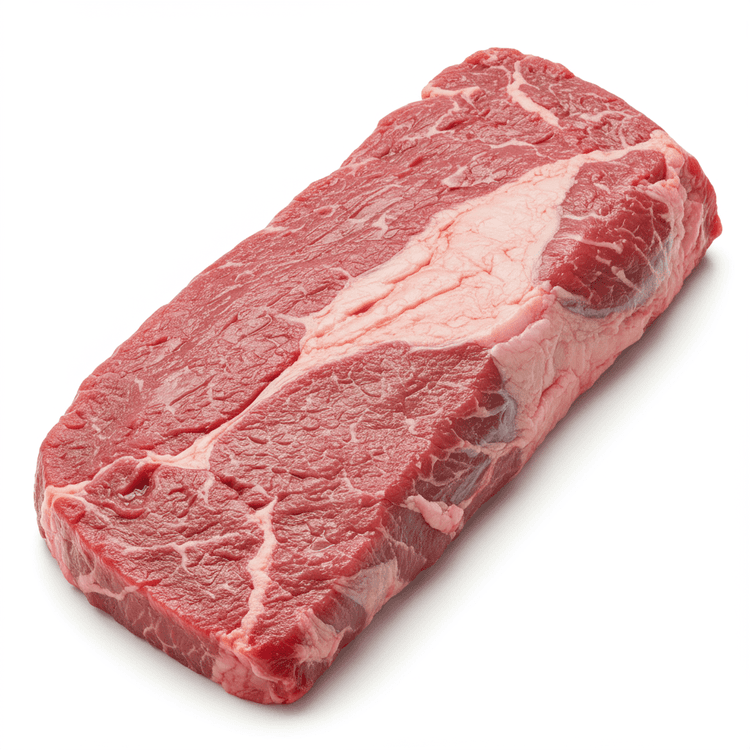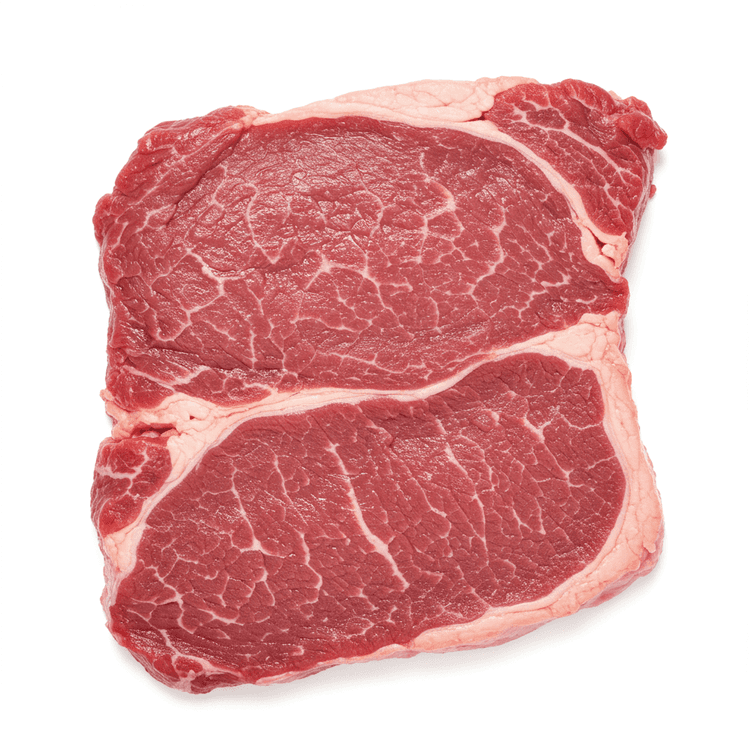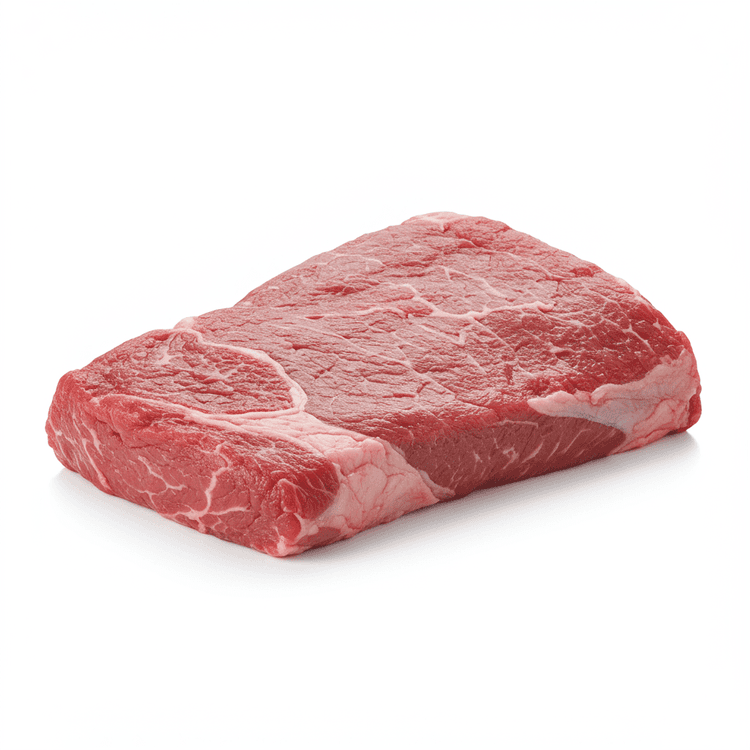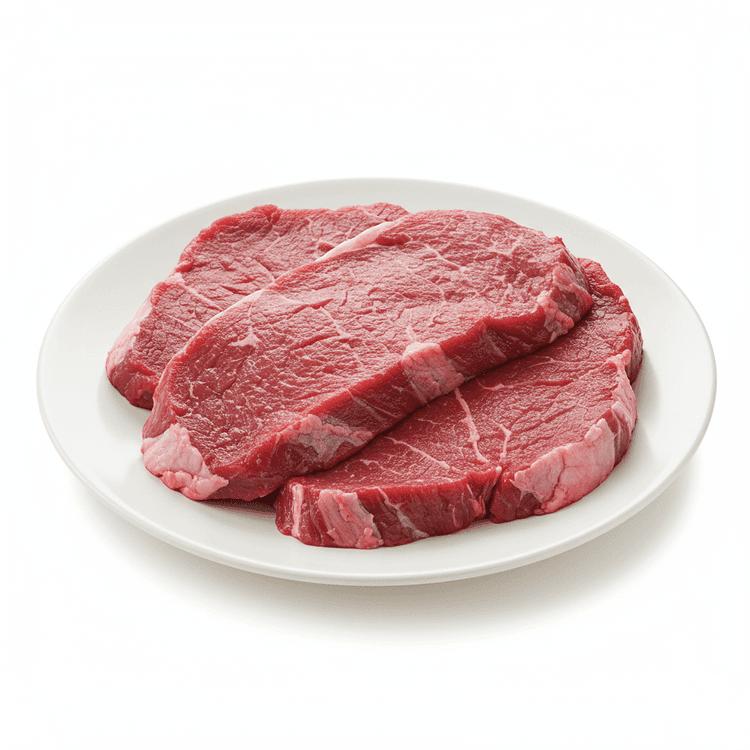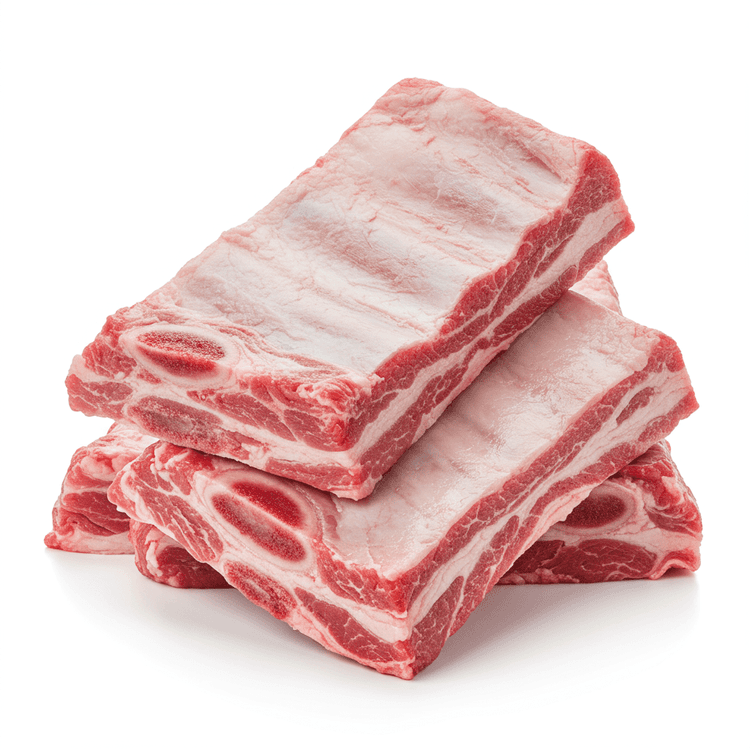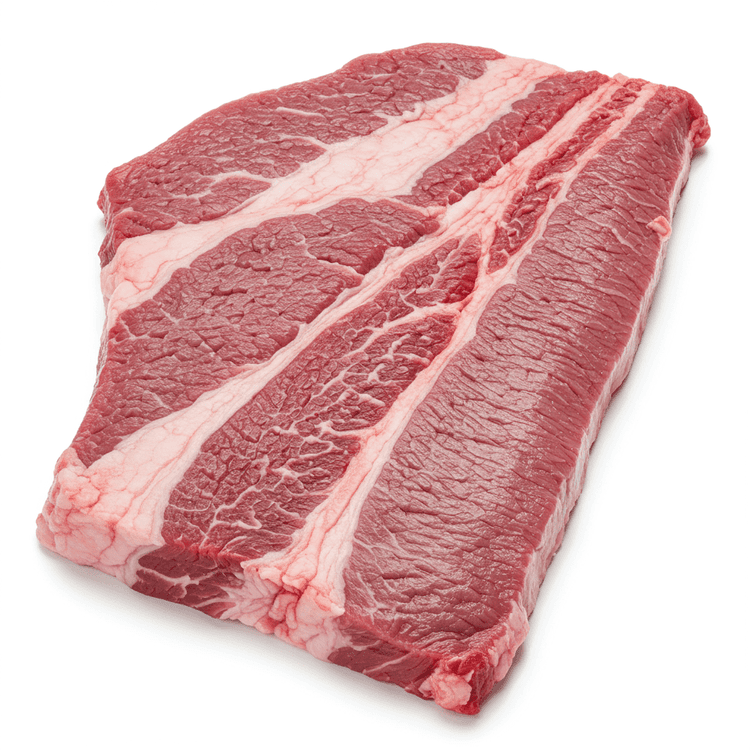
Brisket
Brisket is a cut of beef from the breast or lower chest of the animal. It's a tough cut of meat known for its rich, beefy flavor and significant marbling. When cooked properly, brisket becomes incredibly tender and juicy. Raw brisket is a large, relatively flat piece of meat with a coarse grain and a thick fat cap, ranging in color from a deep red to a paler pink depending on the grade and aging process. Properly smoked or slow-cooked brisket will have a characteristic 'smoke ring' just beneath the surface.
Common Uses
- Brisket is commonly used for smoking, a slow cooking method that imparts a smoky flavor and breaks down the tough connective tissue. Smoked brisket is a staple in Texas barbecue.- Braising brisket in liquid, such as beef broth or wine, results in a tender and flavorful pot roast or braised beef dish.- Corned beef is made by curing brisket in a brine, resulting in a salty, tangy flavor. Corned beef is often boiled or steamed and served with cabbage.- Brisket can be ground into ground beef, offering a flavorful and relatively lean option for burgers, meatloaf, or other ground beef recipes.- In Jewish cuisine, brisket is often slow-cooked with vegetables and aromatics, such as onions, carrots, and garlic, for holidays like Passover and Rosh Hashanah.- Brisket can also be used to make flavorful and hearty stews. The long cooking time tenderizes the meat and allows it to absorb the flavors of the broth and vegetables.
Nutrition (per serving)
Nutrition (per serving)
Calories
279.0kcal (13.95%)
Protein
25.7g (51.4%)
Carbs
0.0g
Sugars
0.0g
Healthy Fat
9.1g
Unhealthy Fat
8.7g
% Daily Value based on a 2000 calorie diet
Nutrition (per serving)
Calories
279.0kcal (13.95%)
Protein
25.7g (51.4%)
Carbs
0.0g
Sugars
0.0g
Healthy Fat
9.1g
Unhealthy Fat
8.7g
% Daily Value based on a 2000 calorie diet
Health Benefits
- Excellent source of protein, essential for muscle building and repair.
- Rich in iron, supporting healthy red blood cell production and preventing anemia.
- Contains zinc, vital for immune function and wound healing.
- Provides B vitamins, including B12, crucial for energy metabolism and nerve function.
- Offers a good source of selenium, an antioxidant that protects against cell damage.
Chefadora AI is here.
Experience smarter, stress-free cooking.
Storage Tips
Brisket is best stored properly to maintain its quality. Fresh brisket should be tightly wrapped in plastic wrap and then aluminum foil or placed in an airtight container and refrigerated immediately. It will keep for 3-5 days in the refrigerator. For longer storage, freeze the brisket, ensuring it's well-wrapped to prevent freezer burn; it can last for 6-12 months in the freezer. When thawing, do so in the refrigerator to maintain quality and prevent bacterial growth.
Marnirni-apinthi Building, Lot Fourteen,
North Terrace, Adelaide, South Australia, 5000
Australia
